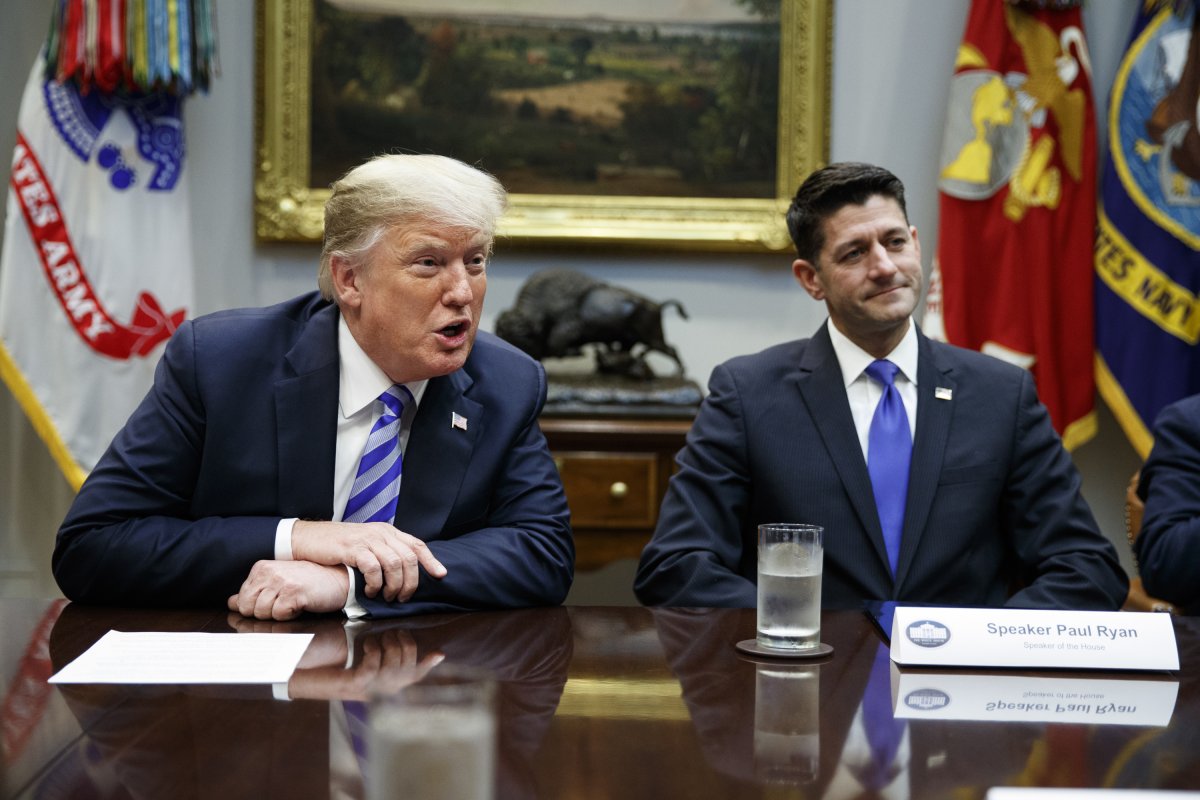Former House Speaker Paul Ryan said Wednesday that he believes the Supreme Court is “more than likely” to strike down the use of the International Emergency Economic Powers Act (IEEPA), the law President Donald Trump has leveraged to impose sweeping tariffs, if the case reaches the High Court.
Newsweek filed a contact request form for comment with Solamere Capital, where Ryan is a partner.
Why It Matters
Trump has repeatedly announced, imposed, paused and reinstated a slew of tariffs at varying rates on U.S. trading partners to curb immigration, drug trafficking, and reduce trade deficits. Trump’s tariffs have caused the market to both slump and spike.
Economists have warned that the tariffs, which are effectively a tax imposed on imported goods, will inevitably lead to increased costs for Americans. Trump has defended his policies, saying the tariffs will cause “some little pain” upfront but in the long term will be “worth the price that must be paid.”
The tariffs are currently under review by the U.S. Court of Appeals for the Federal Circuit, which heard oral arguments at the end of July.
At issue in the case is Trump’s use of the 1977 IEEPA to impose tariffs without seeking congressional approval or conducting investigations first. The law gives presidents broad power to impose economic sanctions during national emergencies, but Trump is the first president to use it to impose tariffs.

AP Photo/Evan Vucci
What To Know
Ryan, who served as House speaker from 2015 to early January 2019 and chaired the House Ways and Means Committee, told CNBC that he does not believe that tariffs are going to result in a settled, predictable market, noting that the “uncertainty” of tariffs is one of the biggest policy points right now. Since retiring from Congress, Ryan has been a vocal Trump critic.
“It’s more than likely that the Supreme Court knocks out IEEPA, the law that’s being used for these tariffs, which doesn’t have the word ‘tariff’ in it,” he told CNBC. “Then, the president is going to have to go to other laws to justify tariffs—232, 201, 301. There’s a bunch of laws, and those are harder laws to operate with.”
He called out the tariff policy as being based on Trump’s “whims and opinions,” and later noted that “tariffs are the wrong way to go. It makes you unproductive, it lowers living standards, it’s bad for our industries…good short-term politics, bad long-term economics.”
In May, a three-judge panel of the U.S. Court of International Trade sided with the states and businesses that challenged Trump, ruling that Trump’s April 2 “reciprocal” tariffs “exceed any authority granted to the President” under IEEPA. In the case of the tariffs on Canada, China and Mexico, the trade court ruled that the tariffs did not meet IEEPA’s requirement that they “deal with” the problem they were supposed to address.
The Trump administration appealed the court’s ruling, and the Federal Circuit has allowed the tariffs to remain in place while it considers the appeal.
The case comes as the latest jobs report showed that the U.S. labor market has slowed over the past few months, with unemployment inching upward and prior job gains revised to be weaker than expected. U.S. employers added 73,000 jobs in July, far fewer than expected, while unemployment moved to 4.2 percent from 4.1 percent.
The Bureau of Labor Statistics wrote on Friday that “Revisions for May and June were larger than normal,” adding that “With these revisions, employment in May and June combined is 258,000 lower than previously reported.”
Trump reacted to the disappointing news by firing Dr. Erika McEntarfer, the Commissioner of the Bureau of Labor Statistics, whom he accused of manipulating the reports for “political purposes.”
What People Are Saying
Judge Timothy Dyk said last week about the IEEPA case: “It’s just hard for me to see that Congress intended to give the president in IEEPA the wholesale authority to throw out the tariff schedule that Congress has adopted after years of careful work and revise every one of these tariff rates.”
President Donald Trump wrote on Truth Social on Thursday: “Tariffs are making America GREAT & RICH Again. They were successfully used against the USA for decades and, coupled with really dumb, pathetic, and crooked politicians, we’re having a devastating impact on the future, and even the survival, of our country. Now the tide has completely turned, and America has successfully countered this onslaught of Tariffs used against it.”
What Happens Next
It’s unclear when the appeals court will issue a ruling, but the losing side is expected to appeal to the U.S. Supreme Court.


